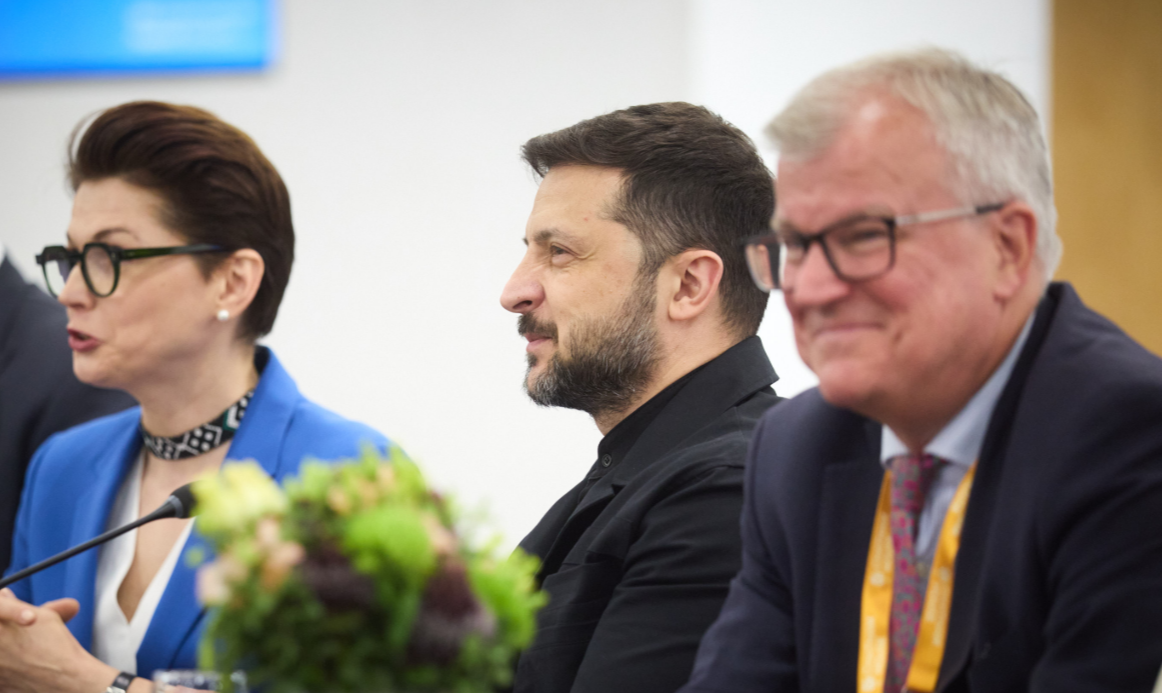Ukraine stands at the edge of collapse as Russian forces unleash a fierce two-front assault, and the U.S. freezes critical military aid including Patriot missiles. With air defenses running dry and cities falling, Kiev urgently seeks alternative support from Europe. Meanwhile, in a rare personal moment, Pope Leo XVI recalls his childhood in Chicago during a surprise visit to a Vatican summer camp, bringing warmth amid the global turmoil.
Ukraine on the Brink: US Aid Freeze and Russian Onslaught Push Kiev Toward Collapse.
Ukraine is facing a critical turning point in its war with Russia. With its military infrastructure under constant bombardment and its forces outnumbered on multiple fronts, the nation’s survival hinges on one factor: foreign aid. But as Washington freezes key military assistance—including Patriot missile systems and critical munitions—Ukraine is now left dangerously vulnerable.
Russian forces have seized this moment. Emboldened by what they perceive as a wavering Western commitment, the Kremlin has escalated both its air and ground offensives. Ukrainian cities are being relentlessly struck by radar-evading ballistic missiles, including the feared Kinzhal hypersonic missile. These attacks are precise and devastating, targeting both critical infrastructure and civilian zones.
Luhansk, a strategic stronghold, has fallen after relentless air and artillery bombardment. Simultaneously, Sunni and Pakovsk are under siege. Russia has mobilized an estimated 111,000 troops on one front and an additional 50,000 near Ukraine’s northern borders. Ukraine’s military, already stretched thin, now faces an even more lopsided battle.
But perhaps the most serious blow is not from Moscow, but from Washington. President Trump’s administration has implemented a freeze on vital military shipments, citing concerns about dwindling U.S. stockpiles. The halt includes crucial air defense systems like Patriot interceptors and other essential munitions. Ukrainian air defense units are already running low, and the risk of having empty launchers during an ongoing assault is becoming an imminent threat.
President Trump has consistently emphasized a peace-first approach to the conflict. He has stated that his goal is to stop the bloodshed and end the war, a sentiment he shared during a CNN town hall. His strategic posture prioritizes de-escalation, and the current freeze on arms appears to be part of that doctrine.
Meanwhile, Russia argues that limiting weapons to Ukraine will bring the war to a quicker end. However, many in the international community fear that this approach will only result in a forced Ukrainian defeat.
In response, NATO allies have begun to scramble. European countries are urgently exploring ways to purchase American-made weapons with their own defense budgets and then send them to Ukraine. These transactions would contribute to NATO’s new defense spending targets, offering a potential workaround to the U.S. freeze. However, no final agreements have been made, and Ukraine’s need is immediate. Delays could be catastrophic.
With the situation deteriorating quickly, the big question remains: will the European effort be enough, and will it come in time? Every day lost could allow Russia to make further territorial gains, and every delay puts Ukraine closer to a total collapse.
Pope Leo XVI Remembers Childhood in Chicago During Surprise Visit to Vatican Summer Camp
In a lighter and heartfelt moment, Pope Leo the 16th offered a rare glimpse into his personal past during an unannounced visit to a Vatican summer camp for the children of Holy See employees. The event, held in the Vatican’s main audience hall, welcomed around 600 children and was decorated with massive inflatable bouncy castles.
In a warm, unscripted exchange, the Pope responded to questions from the children. When asked about his own childhood, he spoke about growing up in Chicago. He shared a memory of waking up early to serve as an altar boy for the 6:30 a.m. mass before heading off to school. He described the experience as a special opportunity to connect with other children and form bonds through shared celebration and community.
The Pope switched from Italian to English while engaging with several Ukrainian children attending the camp. The switch in language reflected not just his fluency, but also his pastoral care in making the children feel comfortable and included.
The spontaneous nature of the Pope’s visit made it all the more meaningful for the children present. In a time marked by global conflict and instability, particularly in Ukraine, Pope Leo XVI’s presence and personal anecdotes served as a gentle reminder of shared humanity, faith, and the innocence of childhood.
Disclaimer:
This article is for informational purposes only and is based on current global events. It reflects news developments at the time of writing and does not represent political or religious endorsements.

